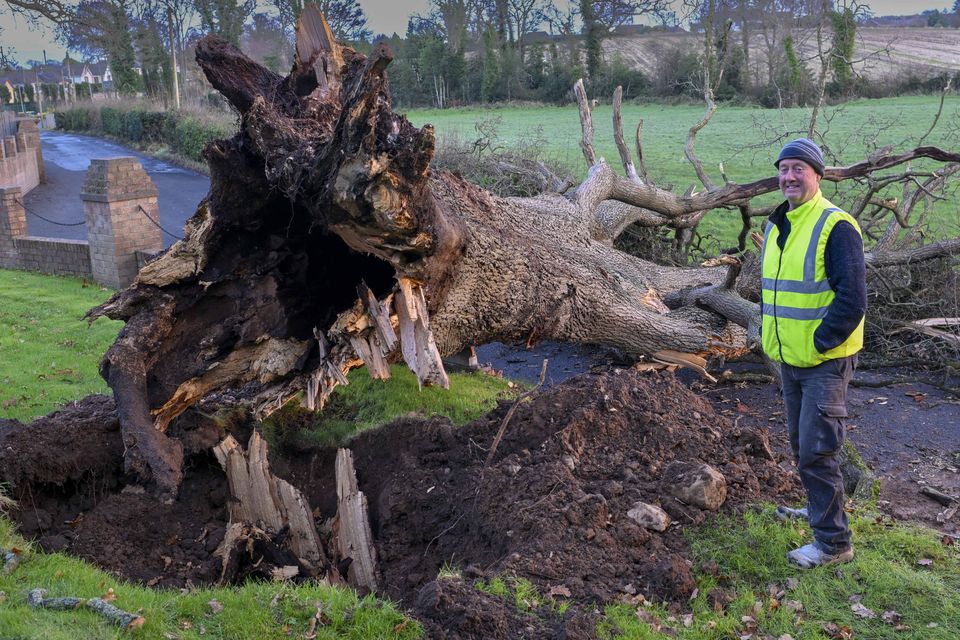There is less electricity than anticipated for Northern Ireland over the rest of the winter after Storm Darragh caused damage to a major power station, it has emerged.
System Operator for Northern Ireland (SONI) said on Thursday that repairs to the damage done to Ballylumford Power Station last month meant there would be more ‘system alerts’ where the gap between supply and demand gets tighter.
But the company, which looks after transmission of power around NI, said there would still be enough electricity generated to meet demand “in normal operating conditions,” with a low risk of disruption.
Emma Morris, SONI
Emma Morris, SONI director of operations, said: “Storm Darragh unfortunately caused damage at one of Northern Ireland’s major power stations in December.
“Due to the extent of the damage, there has been a reduction in Northern Ireland’s available conventional generation while complex repairs take place.
“In October 2024, we published our annual winter outlook which indicated there would be sufficient generation to meet demand in normal operating conditions. This was an improved picture from winter 2023/24.
“Given the reduction in the amount of conventional generation available to us as a result of the damage caused by Storm Darragh, we felt it was necessary to update the winter outlook to account for this.”
Ms Morris said its assessment showed there would still be enough generation to meet demand, assuming all other sources of power can be used in full, but that margins would be tighter.
“However, it is important to reassure consumers that the risk of any disruption remains low.
“While it is possible the grid may experience more system alerts because the margins between demand and supply are tighter, our expert grid control engineers continue to monitor the situation closely and have a range of tried and tested plans in place to protect the electricity system and manage any challenges should they arise.”
Storm Darragh caused destruction across Northern Ireland last month. Image: Pacemaker
She said plans included maximising other conventional generation, use of large grid batteries and working with grid operators in Great Britain and the Republic of Ireland to maximise imports.
Ms Morris added: “Operating any power system is inherently complex and involves balancing a wide range of variable factors, including keeping costs as low as possible.
“In normal circumstances, SONI plans the power system to ensure there is sufficient conventional generation to meet demand, even accounting for reasonably foreseeable contingencies, such as forced generator outages.
“However, the damage caused by Storm Darragh was exceptional in its nature and scale.
“As the System Operator, we continue to work closely with all stakeholders, including the Department for the Economy, the Utility Regulator, NIE Networks, Mutual Energy and private industry to ensure the full conventional generation portfolio is restored as soon as possible and security of supply is maintained in Northern Ireland.”
SONI said a system alert didn’t bring an immediate impact for consumers but was a warning of the risk of temporary electricity supply issues in the short-term so that actions could be taken.
It added that all other system alerts in recent years had passed without disruption to supply.

